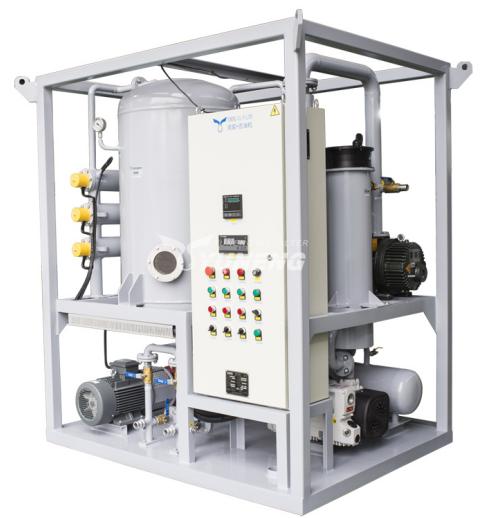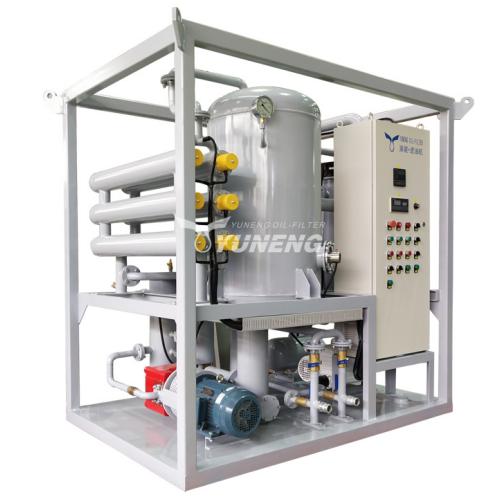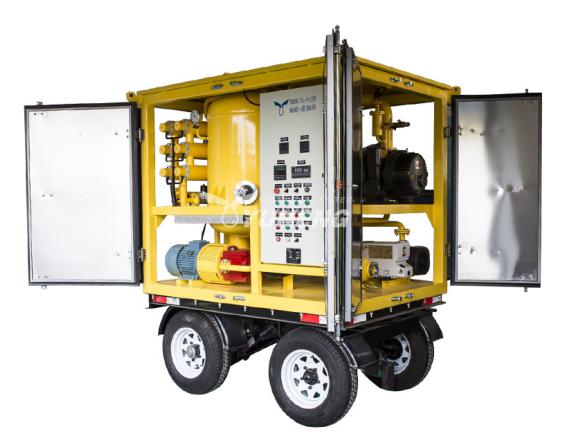Choosing the Right Oil Purifier: Key Features to Consider
Oil purification is a critical process in various industries, including manufacturing, power generation, and transportation. The quality of the oil determines the efficiency and reliability of machines and equipment, making oil purification a crucial aspect of preventive maintenance. An oil purifier is a specialized equipment designed to remove impurities and contaminants from oils to enhance their performance and prolong their lifespan. However, selecting the right oil purifier is not always an easy task. There are various features to consider, including flow rate, filtration rating, capacity, type of oil to be purified, portability, maintenance requirements, power requirements, cost, brand, and reputation. In this article, we will explore each feature in detail to help you make an informed decision when selecting a transformer oil purification machine.

Flow Rate
The flow rate refers to the rate at which the oil purifier can process the oil. The flow rate determines the time it takes to purify a given volume of oil. It is crucial to select an oil purifier with a flow rate that matches your oil processing needs. On the other hand, selecting an oil purifier with a much higher flow rate than what you need can lead to a waste of energy and resources. When selecting an oil purifier, consider the oil volume to be purified, the rate of oil consumption, and the expected turnaround time. These factors will help you determine the appropriate flow rate required for your oil purification needs.
Filtration Rating
Filtration rating refers to the size of particles that the oil purifier can remove from the oil. The filtration rating is essential in ensuring that the oil is purified to the required level. The filtration rating determines the effectiveness of the oil purifier in removing impurities and contaminants from the oil. The filtration rating is measured in microns, and it is crucial to select an oil purifier with the appropriate filtration rating for the oil to be purified. Different oils have varying filtration requirements, and selecting the wrong filtration rating can lead to ineffective oil purification. It is essential to determine the appropriate filtration rating by considering the type of oil to be purified and the impurities that need to be removed.

Capacity
The capacity of an oil purifier refers to the amount of oil that it can process at any given time. The capacity is critical in determining the efficiency and effectiveness of the oil purifier. When selecting an oil purifier, consider the volume of oil to be purified and the frequency of oil purification. A small capacity oil purifier may not be effective in purifying large volumes of oil, leading to production downtime and reduced efficiency. Similarly, selecting an oil purifier with a much higher capacity than what is required can lead to a waste of resources and energy. It is essential to determine the appropriate capacity required for your oil purification needs by considering the oil volume to be purified and the frequency of purification.
Type of Oil to be Purified
Different oils have varying purification requirements. It is crucial to select an oil purification system that is compatible with the type of oil to be purified. Some oils require specialized oil purifiers to effectively remove impurities and contaminants. For instance, transformer oils require specialized oil purifiers that can remove moisture and gases that affect the insulation properties of the oil. Hydraulic oils require oil purifiers that can remove particulate matter, water, and air to prevent equipment failure. It is essential to determine the type of oil to be purified and the specific purification requirements to select the appropriate oil purifier.
Portability
Portability is a critical feature to consider when selecting an oil purifier. The portability of an oil purifier determines its ease of use and flexibility in different work environments. It is crucial to select an oil purifier that can be easily moved around the work environment to facilitate oil purification in different machines and equipment. A portable oil purifier allows for easy oil purification in different locations, reducing downtime and increasing efficiency. However, it is essential to balance portability with other features such as capacity and flow rate to ensure that the oil purifier meets your purification needs.

Maintenance Requirements
The maintenance requirements of an oil purifier are crucial in ensuring that it operates at optimal efficiency. Different oil purifiers have varying maintenance requirements, including filter replacement, oil level checks, and cleaning. It is essential to select an oil purifier with maintenance requirements that match your capacity to carry out maintenance activities. A high maintenance oil purifier may require frequent maintenance activities that can be costly and time-consuming. On the other hand, a low maintenance oil purifier may not effectively purify the oil, leading to decreased efficiency and increased equipment failure. It is essential to consider the maintenance requirements of the oil purifier to ensure that it operates at optimal efficiency.
Power Requirements
The power requirements of an oil purifier determine its energy consumption and the type of power source needed to operate it. Some oil purifiers require a direct connection to a power source, while others require a generator or battery to operate. It is essential to select an oil purifier with power requirements that match your energy needs and the availability of power sources. It is also crucial to consider the energy consumption of the oil purifier to ensure that it does not lead to high energy bills.
Cost
The cost of an oil purifier is an important consideration when selecting one. Oil purifiers come at different prices, ranging from low-cost to high-cost models. It is essential to select an oil purifier that matches your budget while still meeting your purification needs. However, it is important to note that selecting a low-cost oil purifier may not be effective in purifying the oil, leading to decreased efficiency and increased equipment failure. It is essential to balance the cost with other features such as capacity, flow rate, and filtration rating, to ensure that the oil purifier meets your purification needs.
Brand and Reputation
The brand and reputation of the oil purifier manufacturer are important considerations when selecting an oil purifier. A reputable brand is likely to offer high-quality oil purifiers that meet your purification needs. It is essential to research different brands and their reputation before selecting an oil purifier. Reading reviews and customer feedback can provide insights into the effectiveness and reliability of different oil purifiers.
In conclusion, selecting the right oil purifier is crucial in enhancing the performance and lifespan of machines and equipment. When selecting an oil purifier, it is essential to consider features such as flow rate, filtration rating, capacity, type of oil to be purified, portability, maintenance requirements, power requirements, cost, brand, and reputation. By considering these features, you can select an oil purifier that meets your purification needs, leading to increased efficiency, reduced downtime, and decreased equipment failure.

